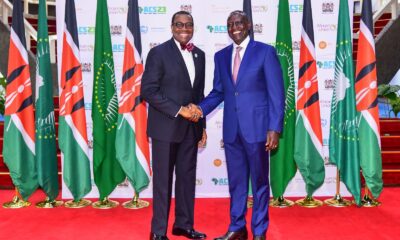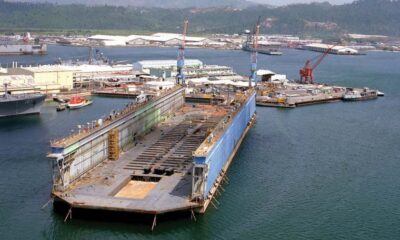- EU Votes 40m Euro for Africa’s Development
The African Development Bank (AfDB) has announced a 40 million euro investment from the European Commission for Facility for Energy Inclusion (FEI), a new platform for financing small-scale renewables in Africa.
A statement said the announcement was made to energy sector stakeholders on the sideline of Africa Energy Forum in Lisbon, Portugal. The bank, the European Commission, in partnership with Lion’s Head Global Partners and Fieldstone and the Lusophone Renewable Energy Association, presented the facility to participants at the Forum.
FEI is a $500 million financing platform spearheaded by the AfDB to catalyse financial support for innovative energy access solutions. FEI On-grid, a targeted $400 million fund, supports improved energy access through the development of small-scale renewable energy generation and mini-grids across Africa, while the Off-Grid Energy Access Fund (OGEF), a targeted $100 million fund, supports off grid energy distribution companies and boosts their long-term capacity to access capital markets at scale.
Affordable, clean and sustainable access to underserved communities in the sub-Saharan region.
“Through FEI, we aim to increase co-financing and private sector investment in innovative on-grid and off-grid clean energy access solutions, and consequently move faster on our “Light Up and Power Africa priority to achieve universal energy access in Africa by 2025,” said Cunha.
The event was attended by the renewable energy investor community, including representatives from various Development Finance Institutions (DFIs), international and African commercial banks, project developers and sponsors.
During the event, the FEI fund managers guided project sponsors and developers in attendance through project selection criteria, and financing terms of the specific FEI windows.
In December 2018, the Directorate-General for International Cooperation and Development of the European Commission (DG DEVCO) approved a EUR 25 million investment to FEI On-Grid window, EUR 13 million into the FEI OGEF window, and EUR 1.6 million to support the Fund’s Technical Assistance Facility, which aims to build investee capacity in structuring and executing transactions in African capital markets. These investments will provide junior equity to strengthen FEI’s capital structure, and enable FEI to fundraise from a range of commercial and private investors.
“FEI is a great example of how the EU has been developing innovative financing initiatives together with financial partners such as the African Development Bank, to stimulate and de-risk private sector investments without which we won’t be able to address the growing energy demands and provide access to sustainable energy in sub-Saharan Africa,” said Head of Infrastructure, and African Development Bank Liaison at the EU, Hugo Van Tilborg.
The European Commission’s contribution further underscores the AfDB’s focus on building strong partnerships with diverse organisations in order to provide a wide range of grant and investment instruments to fast track sustainable energy access across the continent.
FEI’s off-grid window reached a $58 million first close in August 2018, with contributions from the AfDB, the Nordic Development Fund, the Global Environment Facility, All On and Calvert Impact Capital, Shell Foundation, USAID and the UK’s Department for International Development. FEI On-Grid is currently fundraising towards achieving a first close of about $120 million.

 Forex3 weeks ago
Forex3 weeks ago
 Naira3 weeks ago
Naira3 weeks ago
 Billionaire Watch2 weeks ago
Billionaire Watch2 weeks ago


 Naira3 weeks ago
Naira3 weeks ago




 Naira2 weeks ago
Naira2 weeks ago




 Naira1 week ago
Naira1 week ago




 Naira4 weeks ago
Naira4 weeks ago
 Banking Sector4 weeks ago
Banking Sector4 weeks ago




















